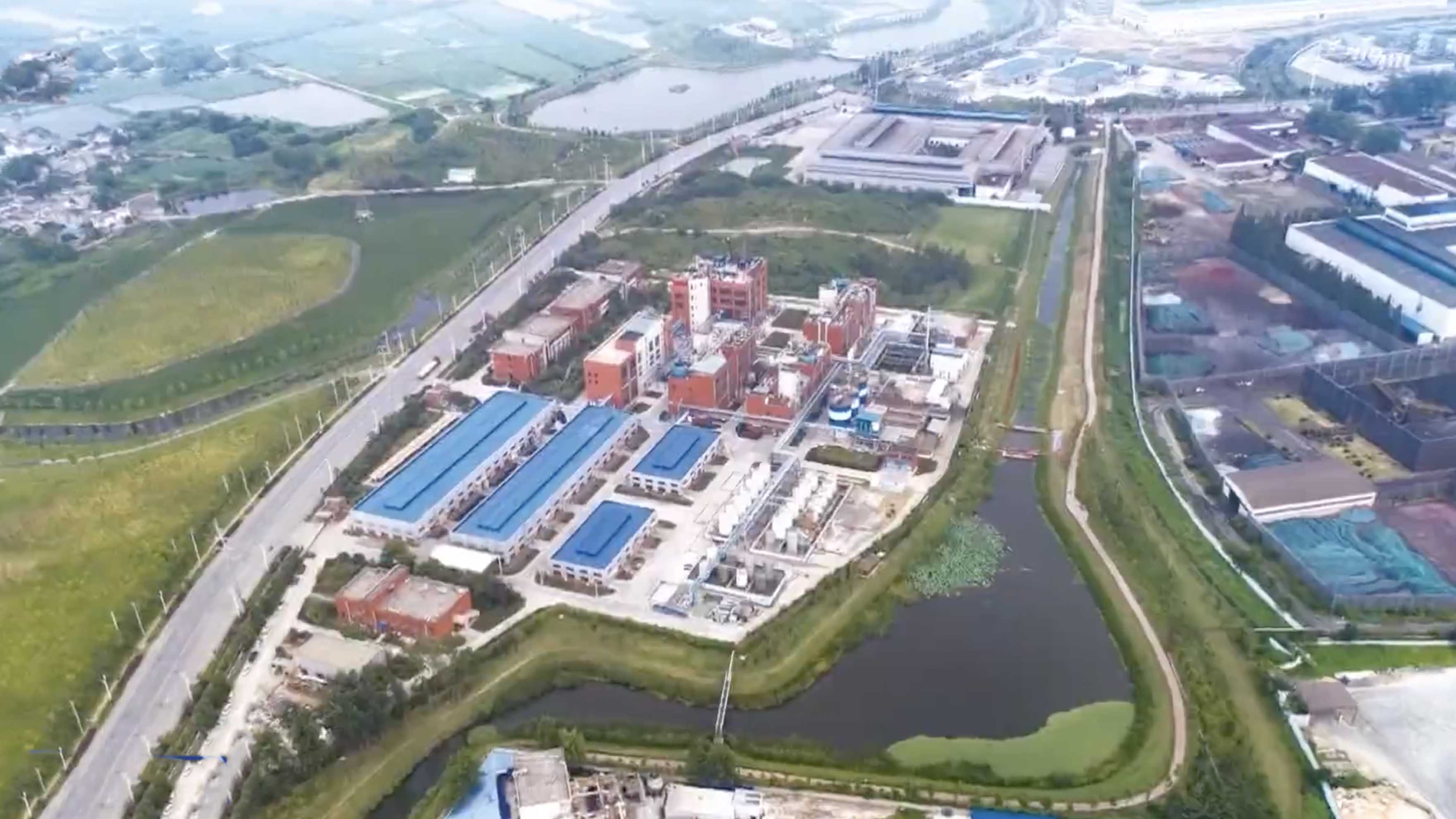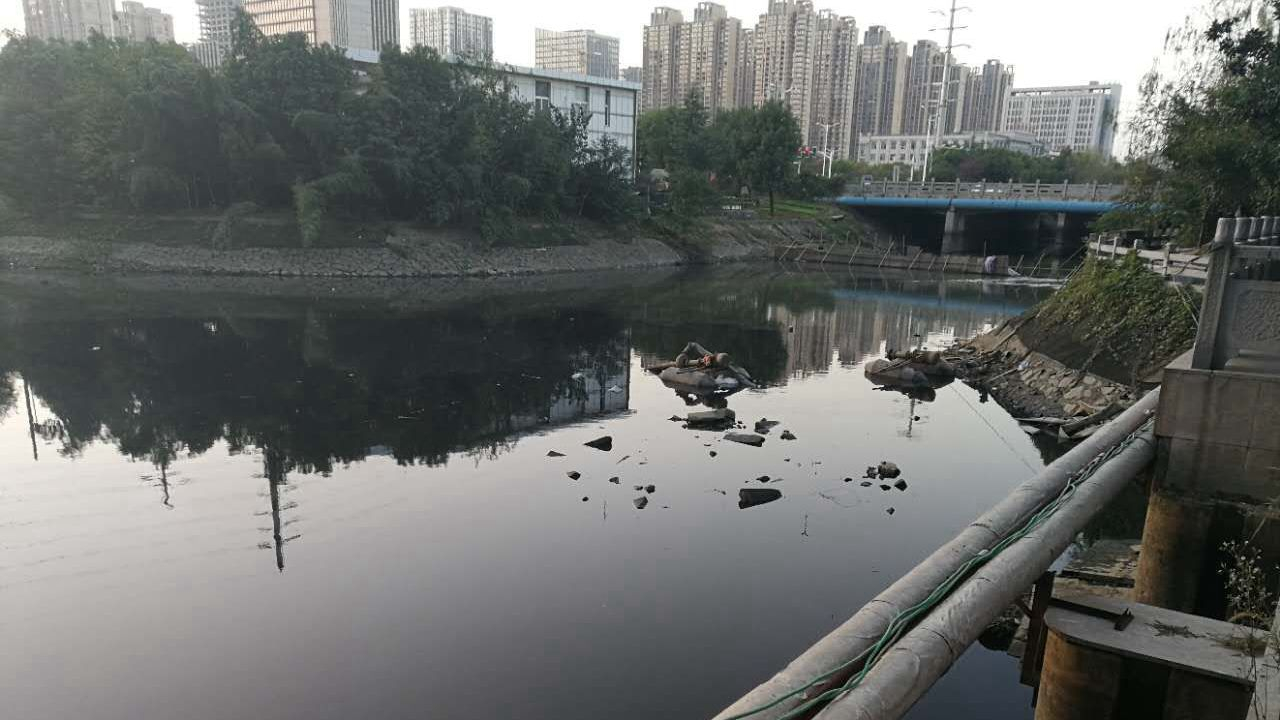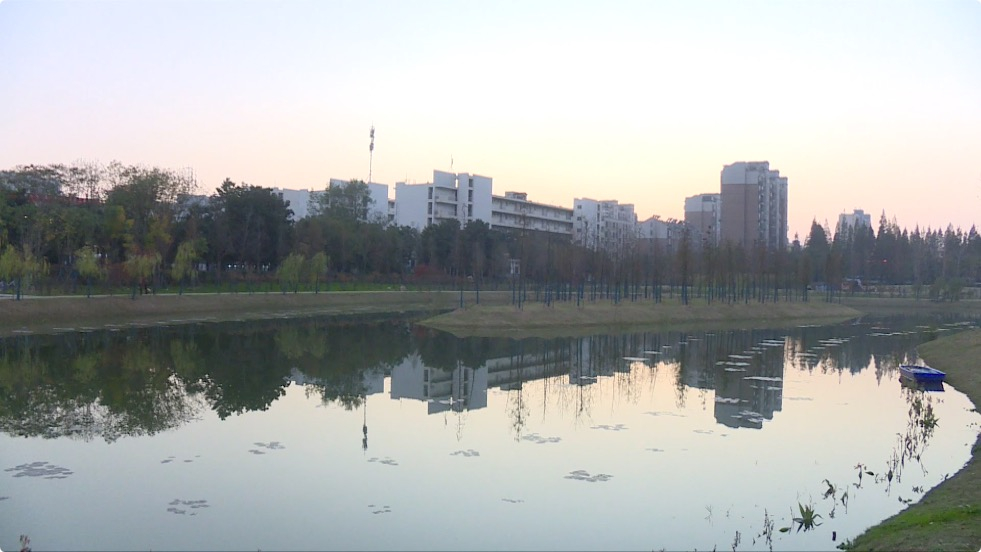02:14

Situated at the lower reaches of the Yangtze River, Ma'anshan city in Eastern China's Anhui Province has taken advantage of its natural resources to boost economy. But intensive development has taken tolls on urban water quality.
In 2016, water quality from 35 of the city's urban rivers was identified as below Grade Five, the lowest water quality grade in China's five-tier system. In China, the most polluted water bodies are often black and odorous. Contaminated by chemicals and all kinds of waste, the water is not even fit for industrial or irrigation purposes.

One urban river that's black and odorous before in Ma'anshan city, Anhui Province. /Photo by Ma'anshan City Government
One urban river that's black and odorous before in Ma'anshan city, Anhui Province. /Photo by Ma'anshan City Government
Zhu Guobin, a local official in charge of urban development, told CGTN that residents living nearby often kept their windows closed because of the pungent smell. On top of that, most of the stench from urban canals would eventually flow into the Yangtze River and bring down the water quality.
Facing the severe problem, the local government's taking measures. They're overhauling sewage outlets, increasing the capacity of waste water treatment plants, outsourcing the clean-up to environmental companies, and issuing regulations to better monitor and manage pollution. In three years, experts say the changes are now evident.
"So far, at least 30 out of the 35 black and odorous water bodies have been eliminated. Urban water is much cleaner, surrounding areas are greener. Water quality has improved, contributing to the ecological improvement and protection of the Yangtze River," said Zhu.

The environment has improved after treating the black and odorous water bodies near a residential area in Ma'anshan city, Anhui Province. /CGTN Photo
The environment has improved after treating the black and odorous water bodies near a residential area in Ma'anshan city, Anhui Province. /CGTN Photo
At a small park that replaced the messy state near a river identified as contaminated before, one local resident surnamed Ye has witnessed the changes. "The place used to be a smelly gutter," he said, "Now the environment has improved a lot, it's nice to take walks here."
Nationwide, almost 75 percent of black and odorous water bodies in cities near the Yangtze River have been eliminated, according to China's Ministry of Ecology and Environment. Earlier this year, the country unveiled a plan to protect and restore the Yangtze River with goals including eliminating nearly all black and odorous water bodies in cities at or above the prefectural level in the Yangtze River Economic Belt by the end of 2020.